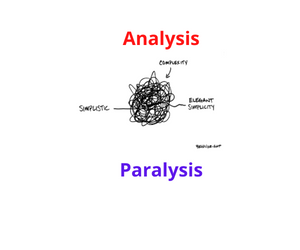This week’s post is about how fixed price deals can lead to wonky thinking.
In recent years, the good folk at SWIFT have come up with a fixed price plan. Not quite the same as one of those nice all you can $5.99 breakfasts in holiday resort in America, but similar and in fact adjusted for the fact, that just like in America, some folks eat a lot more than others. So there are different sized plans, including the X and XL. You are allowed some leeway in the number of messages on the upside. Great thing.
Now fixed or not, those fees have to be handed down the organisation. That will invariably happen based on message count. Fair enough really, since one message is more or less the same as another.
One of my friends in the FX area of a major investment bank and major FX market player was looking at his allocation and realised that if he stopped sending MT300’s for trades settling in CLS, his count and therefore his allocation would go down. Great idea, even if it is some 11 years late in being realised, since from day 1 of CLS in late 2002, there has been a rule that allows MT300’s to be omitted and prevents one party forcing the other to send one. Fine thing it is and certain institutions have long since taken advantage of this and already saved a good quid. Be that as it may, at this IB, the MT300’s were cut and the allocation went down. Job done. Well only kind of.
Because the bill was fixed, those who were sending messages now had to pay more. They complained vociferously at my friend in FX and said he should not do what he did and they were upset at paying more.
The moaners missed the point; my friend in FX had actually done the whole bank a favour. In the next year either could downsize to a cheaper fixed price plan or somebody else could use the spare capacity without increasing the firm’s overall spend.
Lessons Learned: First off, this fix was a bloody long time coming. Shame on the bank for not having got with the no need for MT300‘s programme earlier. A quick guesstimate using volumes of 20k trades a day and a cost of €0.10 would say that over 10 years that is €5 million in unnecessary expense.
Second, even with a fixed price plan, a bank needs the nudge that one area optimising in its own back yard gives. The result of the FX department’s change ought to do a couple of things: i) force the Network Management team to maybe buy a smaller plan and ii) force everybody else whose costs go up to think about what they can do to cut messages and costs. Has to be healthy.
To close the week’s post, it is worth observing that it was the team at Credit Suisse that came up with the no MT300 rule. It was hard to get it done, but worth it. We might have made faster progress had we called it the “MT300 substitution rule” and not the “MT300 elimination rule.” Sadly we were not on points from the others who benefitted and more sadly and even shocking is that there are those still sending them.
A personal request: The book of the Blog is in the works. Your support would be appreciated on two fronts:
- Please subscribe, if you don’t already.
- Please share this with a friend or two and ask them to subscribe too.
If the comments are wide of the mark and not offering anything of use, please comment or make contact directly via E-Mail.
Share on:



